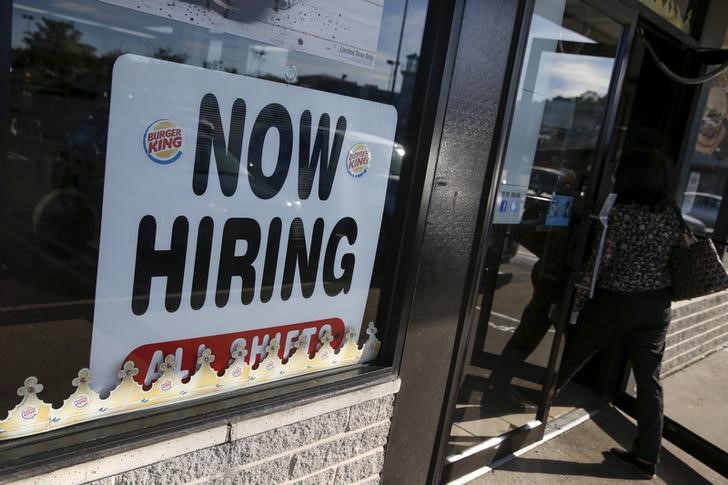(Bloomberg Opinion) -- Many states are racing to reopen their economies before measures such as testing, contact tracing and full-time mask-wearing are in place. But the one of biggest economic effect of a hasty end of lockdowns adopted to limit the spread of the coronavirus won’t be to save businesses; it will be to kick people off of desperately needed government assistance.
While almost all other developed nations are seeing their new Covid-19 cases decline as a result of lockdowns and other public-health measures, the U.S. has only managed to reach a plateau. State-by-state data paints an even grimmer picture with infections and deaths falling in the hard-hit New York City metro area but rising elsewhere. In this dire situation, it would seem imprudent to lift lockdowns nationwide. Although a few states -- Alaska, Hawaii and a handful of others -- have low case growth, copious testing and teams of contact tracers standing ready to catch outbreaks before they can spread, most are not ready yet. And in fact, most Americans want government to wait before reopening:
Proponents of reopening paint it as a choice between human lives and the economy. If tens or hundreds of thousands of Americans die so that the economy can live, so be it. But this probably is a false choice. A premature reopening is unlikely to resuscitate the economy, because lockdowns aren’t the biggest factor keeping people in their houses. The biggest factor is simply fear of the virus itself.
Most states began closing schools and large public events about March 15, but didn’t issue stay-at-home orders until a week or so later. But by that time, restaurant traffic nationwide had collapsed:
The obvious explanation is that the same fear that drove public pressure for states to adopt lockdowns also kept people at home. Nor has this fear dissipated as the outbreak has continued. A recent CBS News poll found that even if stay-at-home orders were lifted, 48% of Americans wouldn’t return to public places until the outbreak is over, while an additional 39% say it would depend on the course of the outbreak. A large majority -- 71% -- said they wouldn’t be comfortable going to a bar or restaurant.
This widespread wariness will be devastating for any business that relies on foot traffic. Restaurants and shops have to pay monthly rent and other costs that don’t depend on the amount of business they do. Very few brick-and-mortar businesses can survive a 70% decline in patronage.
On top of this, it will be hard for many of these businesses to find workers willing to tolerate the increased risks without large increases in pay. Already, workers at meat-packing plants, which tend to be among the hardest-hit workplaces, are quitting as the plants reopen.
Leaders intent on reopening might be able to force workers back to their jobs by canceling their unemployment checks. For example, Iowa Governor Kim Reynolds recently declared that workers not returning to the job because they're afraid of getting sick would be treated as having quit, and they would lose the unemployment benefits that now are their economic lifeline. Other states have made similar threats.
Giving workers a no-win choice between abject poverty and mortal danger will force some back to factories, stores and offices. But that doesn’t mean that there will be much work for them to do. Consumers can’t be forced to shop or dine out at gunpoint. As both polls and restaurant reservation data show, as long as the coronavirus is still running rampant, Americans will continue to cook at home, order goods online, cut their own hair, watch Netflix (NASDAQ:NFLX) instead of going to the movies and so on. And with unemployment checks canceled, demand for local services will tumble even more. Meanwhile, if infections begin to accelerate again, consumer fear will become more deeply entrenched.
In other words, premature reopenings may well hurt state economies instead of helping them. So why are governors doing it? One possibility is that for some conservative leaders, withholding government benefits for workers, consumers and businesses is a goal in and of itself. Governors such as Reynolds might be simply misinformed about the choices they face, but they might be motivated by a principled opposition to government payouts.
This would be a terrible reason to reopen. Small-government principles are not worth the loss of both citizens’ lives and their economic well-being. Instead, states should maintain and intensify lockdowns while racing to increase testing and hire contact tracers for those who test positive. A safe reopening is within reach, but it requires patience and discipline -- two qualities that seem sorely lacking in the U.S. today.
This column does not necessarily reflect the opinion of the editorial board or Bloomberg LP and its owners.
Noah Smith is a Bloomberg Opinion columnist. He was an assistant professor of finance at Stony Brook University, and he blogs at Noahpinion.
